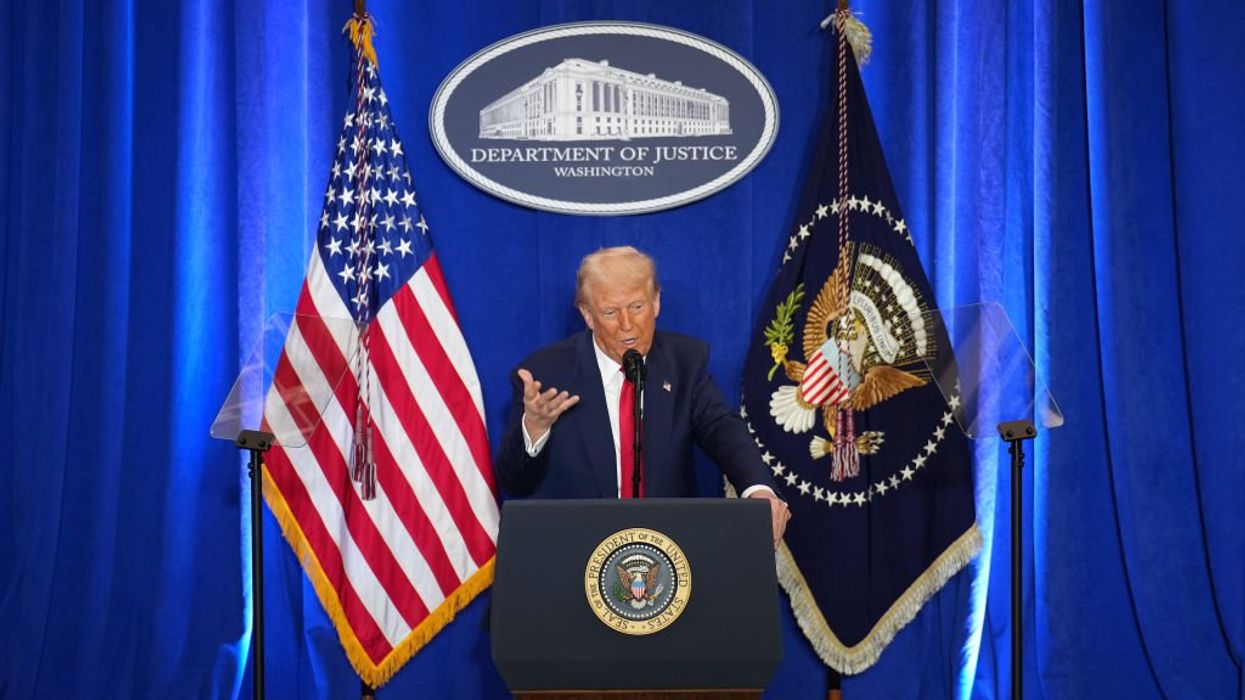The Fulcrum strives to approach news stories with an open mind and skepticism, striving to present our readers with a broad spectrum of viewpoints through diligent research and critical thinking. As best we can, we remove personal bias from our reporting and seek a variety of perspectives in both our news gathering and selection of opinion pieces. However, before our readers can analyze varying viewpoints, they must have the facts.
How many legal actions have been filed against the Trump administration since January 2025?
Since January 2025, over 186 legal actions have been filed against the Trump administration. These lawsuits challenge various executive orders and actions, including immigration policies and the use of the Alien Enemies Act. For example, Massachusetts Attorney General Andrea Campbell alone has filed 11 lawsuits targeting issues like birthright citizenship and federal worker firings.
What is an amicus brief and how many have been filed against the Trump administration so far?
An amicus brief, or "amicus curiae" (Latin for "friend of the court"), is a legal document filed in appellate courts by individuals or entities who are not directly involved in a case but who have a vested interest in its outcome. These briefs provide additional information, arguments, or perspectives to assist the court in making its decision.
As for the Trump administration, numerous amicus briefs have been filed against its actions, particularly challenging executive orders and policies. For example, a coalition of 20 state attorneys general recently filed amicus briefs opposing executive orders that target law firms that represented clients or causes disfavored by the Trump administration. Additionally, hundreds of law professors submitted an amicus brief against the administration's actions on Big Law. The exact total number of amicus briefs filed against the Trump administration is difficult to pinpoint but they have been a significant tool in legal challenges throughout its tenure.
Are the 186 actions taken against the administration extremely high compared to former Presidents in the first 100 days?
The 186 legal actions against the Trump administration in its first 100 days are notably high compared to previous presidents. For example, during President Biden's first 100 days, there were fewer than 50 lawsuits filed against his administration. Similarly, President Obama faced around 30 legal challenges in the same timeframe. This surge in litigation reflects the contentious nature of Trump's policies and executive orders.
How many of the 186 legal actions have been adjudicated and how many are in favor of the Trump administration and how many are against it?
Out of the 186 legal actions filed against the Trump administration since January 2025, four cases have been adjudicated so far. The outcomes have been mixed, with two rulings favoring the administration and two rulings against it. The remaining cases are either ongoing or awaiting decisions.
How many Supreme Court rulings have gone for and against the Trump administration in 2025?
In 2025, the Supreme Court issued several rulings involving the Trump administration.
- Deportations under the Alien Enemies Act: The Supreme Court ruled against the Trump administration's use of the 1798 Alien Enemies Act to deport Venezuelan nationals. The court ordered the administration to pause deportations and ensure due process for those affected.
- A Mistaken Deportation Case: The court required the administration to "facilitate" the return of a Maryland man who was wrongly deported to El Salvador. While the administration argued it couldn't be compelled to bring him back, the court upheld the lower court's directive to ensure his case was handled properly.
- Teacher Training Grants: The court sided with the Trump administration, allowing it to halt millions of dollars in teacher training grants.
- Federal Workers' Reinstatement: The court supported the administration by blocking the reinstatement of 16,000 fired federal workers.
Are there any estimates at this point as to how many current cases will go to the Supreme Court and if so when?
Several additional legal challenges against the Trump administration are expected to reach the Supreme Court. For instance, the court has already agreed to hear oral arguments on May 15 regarding restrictions on birthright citizenship. Additionally, emergency applications related to deportations under the Alien Enemies Act have been filed and the Supreme Court has issued temporary rulings in some cases.
The timeline for other cases depends on how quickly lower courts resolve them and whether the Supreme Court decides to grant certiorari.
What happens if the President defies a ruling of the Supreme Court?
If a president defies a Supreme Court ruling, it can trigger a constitutional crisis. The judiciary relies on the executive branch to enforce its rulings, as the courts themselves lack enforcement power. In the event of defiance, several outcomes could unfold:
- Political Pushback: Congress or other political bodies may intervene, potentially through impeachment proceedings if the defiance is deemed an abuse of power.
- Public Opinion: Pressure from the public and media can influence the administration to comply, as ignoring the judiciary undermines the rule of law.
- Legal Challenges: Individuals, states, or organizations affected by the defiance can file lawsuits to compel compliance or address the consequences.
Such a scenario has historical precedents, such as President Andrew Jackson's famous defiance of a Supreme Court ruling in the 1832 case Worcester v. Georgia. While rare, defiance poses risks to the balance of power and the integrity of democratic governance.
David Nevins is co-publisher of The Fulcrum and co-founder and board chairman of the Bridge Alliance Education Fund.




















